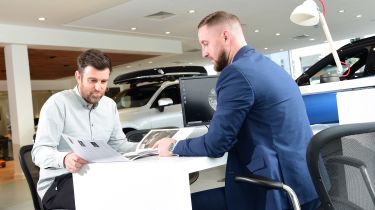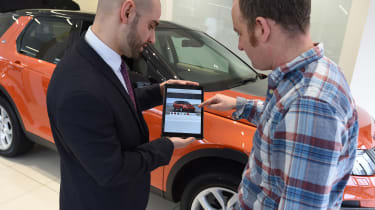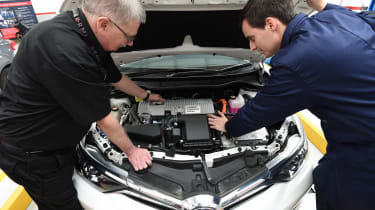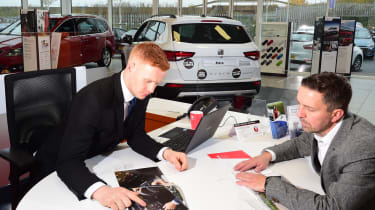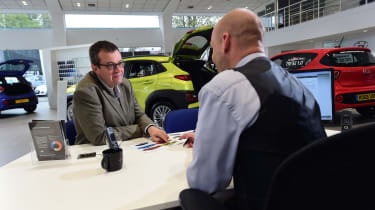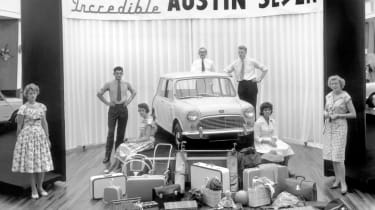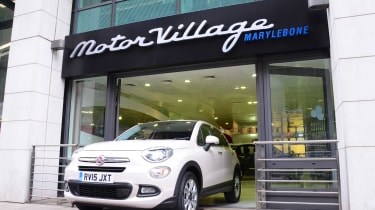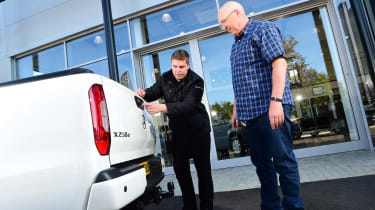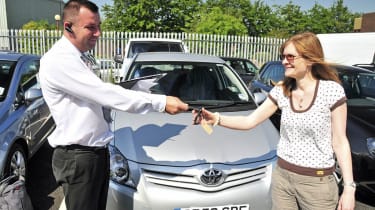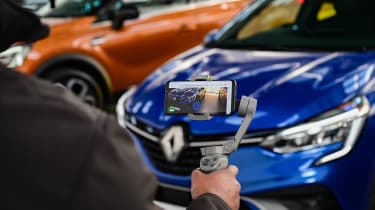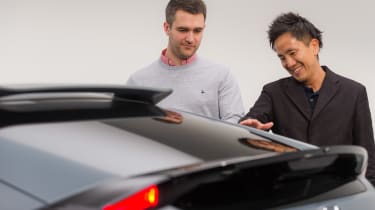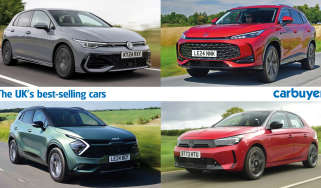Buying a car from a dealership: 20 tips to get the best deal
Follow our tips and tricks to get the best deal when you buy a car from a dealership
Car dealerships are the first port of call for most new and used car buyers, but it pays to do your research before turning up and taking a test drive. Visiting a dealership already knowing exactly what you want, how much you should be paying and salesperson tactics to look out for could save you time and, importantly, money.
The following guide covers the above, along with other top tips for securing the best deal on your next car purchase. We also have a complete guide to buying a new car which will help you narrow down the type of car you need, how much to spend and where to buy from. We’ve also covered how to buy a used car, as well as whether buying new or used is the right decision for you.
1. Know what car you want
You should have at least a general idea of the car you want before stepping foot in a car dealership. Doing your research beforehand will immediately cut down your shortlist and save you time. Think about your lifestyle: are you in need of something practical, like a hatchback or SUV, or would you prefer an executive car or coupe instead?
The easiest way to find out what car will suit your needs and keep your wallet relatively happy is to set a budget and then look at what’s available in one of our Best Cars lists. Knowing how much you want to spend on your next car will help you narrow down your options.
Once you’ve made a shortlist of the cars that match your criteria, you can start to research those models in more detail by reading our in-depth reviews, which cover everything you need to know. Once you know which cars are most appealing to you, then you can start thinking about heading to a dealer to see one in the metal.
2. Know what engine, gearbox and fuel type you want
Most car models are available with a choice of engines, so it’s important to understand the differences to figure which one is best for you. The salesperson will be able to answer your questions, but you run the risk of being sold something more powerful or expensive than you need. You may find it helpful to have an understanding of engine size, hybrid cars and electric cars before visiting a dealership.
Petrol cars are the most popular car type in the UK. They tend to suit buyers who do a broad range of driving – a combination of short and long trips, both around town and on the motorway. Diesels, on the other hand, have declined in popularity in recent years, and there are fewer options on the market today. That being said, they are still a suitable option for those who do lots of motorway miles as they’re more economical at high speed and over long distances, while also making good tow cars.
Electric cars are more usable than ever, and many can comfortably drive 200 miles or more on a single charge. They make a great choice for business drivers, thanks to the UK’s emissions-based Benefit-in-Kind (BiK) tax system, and are ideal for drivers who only do short trips around town.
Hybrid models also benefit from low BiK rates and are good for those wanting low-cost travel in and around town with the assurance they can still do longer trips without running out of power.
Manual gearboxes are usually cheaper than automatics, and some people prefer them. Automatics can often be more relaxing to drive because the car changes gear for you; this is especially the case if you regularly drive in heavy traffic, when you would constantly be using the clutch pedal in a car with a manual gearbox.
It’s also worth thinking about whether you need a car with four-wheel drive. Small cars tend to use front-wheel drive, and this system works well for most drivers. A four-wheel drive model will often cost more, but it can be useful if you live in an area with tricky road conditions or if you plan to tow regularly. Rear-wheel drive is often the choice of enthusiasts looking for a car with balanced handling, but increasingly, electric cars with compact electric motors are also getting rear-wheel drive to free up cabin space.
3. Know which options to choose
Once you’ve picked your car, your engine and your choice of gearbox, you can start to think about the specification of the car and any options you want. If you’re buying new, then there’s usually plenty of scope for you to customise and specify your car exactly how you want it. If you’re buying used, then you will have to look harder for examples with the options you want.
Buying: Choosing optional extras
Think about the options that you really need. It’s not unusual for car dealers to upsell optional extras that may not be of much use to you, so set out your list of essentials beforehand. Often, optional equipment will be rolled into fixed trim levels, so be sure to investigate what’s included at each level and whether it’s worth spending a bit extra to upgrade. You can find out what trim levels and options are available on most manufacturers’ websites.
Choosing certain options can help or hinder the car’s resale value. Adding a sunroof or air conditioning, for example, are options that will likely make a car easier to sell in the future. Bold choices such as bright colours, on the other hand, can make a car much less desirable, so it’s worth keeping that in mind.
4. Know what to pay
All of the above tips feed into this one. Once you know precisely the car you want, you’re in a great position to buy because you can work out what it should cost you. If it’s a used car, you can look at classified ads, auction sites, buying guides and used car marketplaces to get an idea of what to pay.
For a new car, you can start by checking the manufacturer’s website to find the car’s recommended list price. It’s then worth comparing this price to online car brokers to see if there are any discounts that dealers are offering. You can use these prices to negotiate with dealers, or walk away if they won’t match it. Being aware of what to pay is one of the most important tools you can have as a buyer – there’s often lots of choice so you can afford to be picky.
5. Be aware of other running costs
It’s one thing to be able to afford a car’s purchase price, but it’s just as important to estimate running costs as well. Fuel costs are often the first thing that car buyers check; you’ll most likely have looked up the miles per gallon (MPG) figures, so you can compare that to your current car and see if it will cost more or less to fuel each week.
You should also check how much a car costs to tax. Some used cars can cost hundreds of pounds to tax, and others cost nothing at all – so be sure to look that up using an online tool. It’s worth considering other costs that you may incur, depending on where you live and where you’ll be driving the car – you’ll be charged if you drive a non-compliant car in London’s Ultra Low Emission Zone, for instance.
You should also investigate prices for servicing on the manufacturer websites. Considering the prices of consumables such as tyres is also a good idea if you plan to do a lot of miles.
Additionally, you may want to be mindful of the car’s depreciation, or the rate it will lose value over time. When you decide to sell or trade the car in, it will almost certainly be worth less than what you paid for it. For expensive cars with very steep depreciation, it could be worth only a small fraction of what it was originally.
Depreciation is most severe for the first couple of years after a car is bought brand new. If you’re buying a used car that’s already a few years old, it will probably have suffered the worst of its depreciation, so it’s likely to lose less value during your ownership versus a new car. However, that saving can quickly be negated by the additional maintenance costs of an older car, so it’s worth researching both depreciation and reliability beforehand.
6. Buy at the right time
Buying a car at the right time can make a surprising difference to the amount that you’ll pay. For example, convertibles tend to sell at higher prices in the spring than in winter, when buyers are put off by dreary weather.
Buying: Best time to buy a car
In fact, all car prices are affected by when you buy, even new ones. Dealers have targets that they will be pushing to meet, and they usually have a cut-off before key months like March, April and September – especially when the new registrations arrive.
If you show interest in buying just before the end of a term, dealers will be very keen to get the sale done. This means they may offer an excellent price or discount to seal the deal.
7. Know your car finance
Finance is the most popular way to buy a new car, so don’t show up to a dealership without knowing what the different types of car finance are. Dealers will explain them to you, but it’s never a good idea to make a big decision when you only know the basics.
You can read all about PCP, HP and PCH in our explainer articles. If you know what the differences are, you will be in a much better place to decide which works for you, and which is going to bring the best deal.
Pay attention to things like APR, too. Remember that dealers may offer a finance deal that’s even cheaper than paying cash, so keep your options open.
8. Know who you’re buying from
There are many different types of car sellers, especially if you’re buying a used car. Know who you’re buying from and you can adjust your strategy accordingly. If you’re buying new, you can buy from a manufacturer-approved dealer in person, online or via a broker. The latter is a service that finds you a deal by comparing different dealers for you. It’s free so you can use this service as part of your research.
If you’re buying used, you could be buying from a main dealer, an independent dealer or a private seller. Sometimes dealers pretend that they’re private sellers, which is a sign you shouldn’t buy from them. Buying from a dealer gives you more rights, so it’s safer. We’ve covered everything you need to know about where to buy a used car in our explainer guide.
9. If buying a used car, know what to look for
9. If buying a used car, know what to look for
This doesn’t apply when buying a new car, but if you’re looking for a used model then do some research online about common faults so you know what to look for when you’re inspecting the car in person. You can find details on a used car’s common issues and other problems that may affect it in our used car reviews.
If you don’t feel comfortable checking a car over yourself there are plenty of services where you can pay an expert to do it for you. However, you should still be aware of any potential problems and ask for these to be checked.
Have a list of everything you want to check, and don’t be afraid to ask about all of them. The more questions you ask, the better, as this affects your rights (see below) when buying from a dealer.
10. Do your research beforehand - know more than the salesperson
Don’t rely on a salesperson to tell you about a potential new car. Independent reviews such as those here on Carbuyer will point out any problems with a particular model, but a salesperson won’t – after all, they’re trying to get you to buy it.
You should aim to find out as much about your preferred model as possible. This means even if the salesperson misrepresents the car in any way, you’ll still be able to make an informed choice.
You’re less likely to be taken advantage of if you know what you’re talking about. If the salesperson tells you something that sounds wrong, you should look it up afterwards – there’s no need to feel rushed into making a deal there and then, and everything you need to know is an online search away.
11. Be prepared for a sales pitch
Sales staff have all sorts of tricks up their sleeves to get you to buy. This isn’t exclusive to buying a car – everyone’s experienced this at some point.
Some like this process and some don’t, but if you fall into the latter category, you don’t have to participate if you don’t want to. If you’ve done your research you can ignore anything the salesperson says, and rely on your own knowledge to make a more informed decision.
You don’t have to know all the tricks of the trade – just be aware that salespeople often work on commission and it is their job to make money in this way. Don’t buy things like extended warranties or paint protection without being sure that you really want it and that the price is right.
12. Don’t be fooled by marketing tricks
It’s not just salespeople who you need to be aware of. Marketing tricks by manufacturers and dealerships should be kept in mind as well.
A good example would be a limited-time offer. You might see a TV ad or a poster with a time-limited discount on it – but this is designed to get you to buy quickly, so you don’t miss out. The reality is that you’ll save more money by being a canny buyer, rather than rushing to a decision.
Another trick manufacturers use is special edition cars. They might build a version of a car in limited numbers to make it seem rare, or to make buyers hurry to get one. Some special edition models are indeed special – but others aren’t. Sometimes you’ll get a special set of alloys, or maybe an exclusive colour combination, but the car is really no different. Again, it pays to know what you’re looking at.
13. Know how to take a test drive
Always take a test drive before buying a car. If you’re buying new then it’s the only way to see if a car is comfortable and suitable for you. As much as we can help with reviews, only you can tell if a car’s seats are too high or you don’t like the way it rides over lumps and bumps.
For a used car, it’s also a chance to see if there are any issues with the engine or mechanical parts. Any funny noises or smells can be picked out here, and you can walk away if the car isn’t right.
Learn about what to look for before you head to a dealership, or ask someone with more experience to test drive the car with you if you’re not comfortable doing it alone.
14. Always negotiate, and know how to do it
Take some time to read through our negotiation techniques before you head out to buy a car. Many people dislike haggling, but if there’s one time to do it, it’s with a car as you could save thousands of pounds.
There’s plenty of advice online about how to haggle over a car, whether it’s new or used. Generally with a new car you may also have things like paint protection or fuel thrown in as part of a deal, but remember to think about the actual value of these items in the wider scheme of things.
It might sound like a great deal to get a full tank of fuel, but you may be buying a car with a small fuel tank – saving you, in some cases, less than £60. Remember at all times that you are free to walk away – there’s no shame in coming back days later even if you can’t find a better deal elsewhere.
Do also be aware that, if you do want to haggle over the price of a car (especially a new one), this may not be possible in some cases. A number of car makers have adopted a so-called agency selling model, where the prices offered at the dealers have been set by the manufacturers themselves – meaning there’s little if any wiggle room regarding the car’s price.
15. Know the value of your part-exchange
Many buyers will already own a car and will want to trade it in against the cost of a new one through a part-exchange deal. Don’t lose out when you do this; know how much your car is worth before you arrive.
Dealers will often low-ball you with a ‘part-ex’ offer, so knowing your car’s value will help you haggle upwards. Be aware that you’ll never get market value for your car, as the dealer needs to make a profit – but don’t accept a silly low offer just because you’re excited to get into a new car.
You can find out your car’s value by looking at online classified and auction sites or even by using one of the popular ‘we will buy your car’ type websites.
16. Know your rights
When buying from a dealer you have a strong set of consumer rights. You can research them online but it’s worth knowing that you have the right to reject the car or switch it for a replacement if the car isn’t as described by the dealer.
This is why it pays to ask a lot of questions about the car before you buy. The more you ask, the more that will be covered by your rights. Even if you forget to ask something, you’re more than likely still able to return or get a replacement car in the event something goes wrong. Or, if applicable, have something fixed under warranty.
New cars can go wrong too and you have rights under the Consumer Rights Act. There are other things to look up too, such as the Motor Ombudsman rules for car dealers. If something goes wrong, you’ll be prepared.
17. Read the small print
Reading the small print is good life advice in general, but it’s particularly relevant for things like car finance. You need to be fully aware of what you’re signing up for, especially as your credit rating is at risk if you’re not fully informed and things don’t go according to plan.
Buying: Finance with bad credit
Whether you’re paying upfront or on a monthly basis, make sure you’re aware exactly how much you’re committing to and what you are getting for that sum. Ensure anything you’ve negotiated is included in writing, in case it’s forgotten or missed later on in the process.
18. Get an insurance quote before you buy
Imagine walking out of the showroom with the keys to a new car, then looking up insurance quotes only to find that it’s going to cost hundreds or thousands more than you expected. Using an online comparison site is usually the quickest and easiest way to get a car insurance quote.
Buying: Young driver insurance
You may be able to get a better deal by calling your insurer and speaking over the phone. Be aware as well that some insurers aren’t open on a Sunday – so if you want a quote on the phone, do so during the working week.
19. Don’t decide straight away
Remember that you can always walk away and come back another time. In fact, giving yourself a cooling-off period is a very good idea. Stepping away from the shiny showroom can give you time to reflect on whether or not a car is right for you.
You can even step away after negotiating a price with the salesperson. Don’t worry about losing out – they’ll gladly accept you back the next day if you decide it’s the right car for you. It’s worth testing different models from different brands, too, just to make sure your decision is as well-informed as possible.
Buying: What to look for when buying used
Leaving the dealership will also give you a chance to look up anything you missed before you went inside, to make sure you’re getting the right price on the right car at the right time.
20. Double-check everything when you come back to collect your new car
If you do end up buying a car, you’ll probably come back sometime later to collect it. Either that or it will be delivered to you.
Buying: Buying from a main dealer
Check the car over again and make sure that everything is as it was when you first saw it. In the case of a new car, check that it has any extras you agreed on such as a full tank of fuel or paint protection.
You should also check to see if the paintwork or wheels are scratched, or if there was any damage in transit. For a used car, make sure that any damage is the same as when you last saw it – any scratches that have appeared in the meantime will have to be fixed by the dealer, so don’t drive away until you are sure it’s right.
Read more about car warranties and how to transfer car ownership.
Recommended
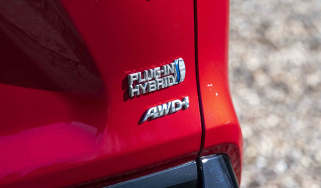
Petrol and diesel car ban relaxed with hybrids permitted beyond 2030

Classic car tax exemption: which historic vehicles qualify?
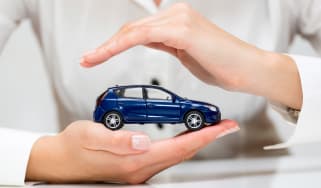
Car warranties: guide to new and used car warranties
Most Popular

New Smart #5 Brabus is a 637bhp far cry from the brand’s city car past

Best car leasing deals 2025: this week’s top PCH offers
Tips & advice

Car dashboard warning lights: what does each symbol mean?

Electric car charging stations: public networks, charger types, apps and maps

